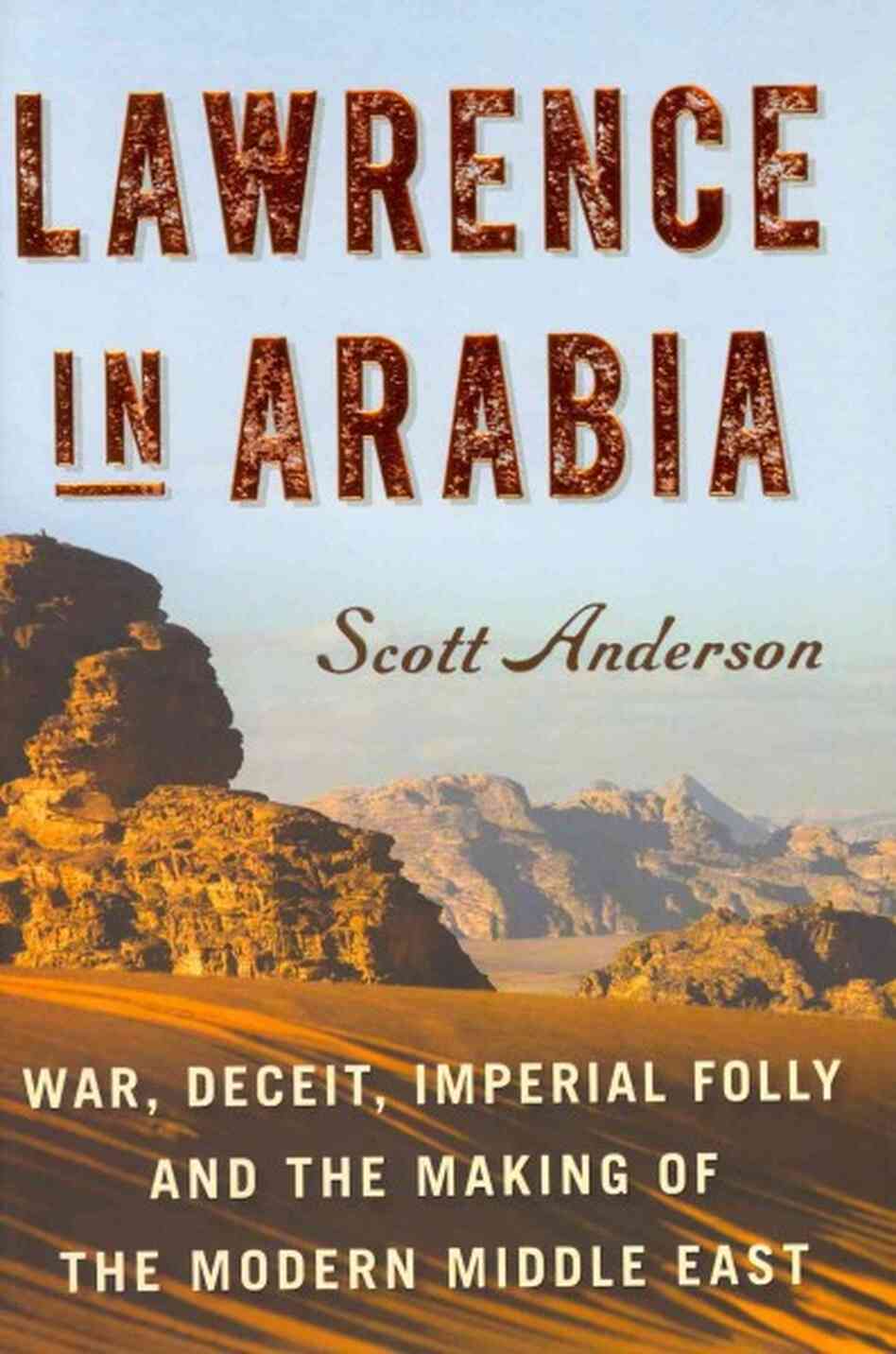7/19/2014
Book Look: Lawrence in Arabia, by Scott Anderson
My history geek son tells me that historians continue to debate whether history creates great men* (*great as in "significant, for good or evil) or great men create history. The story of T.E. Lawrence would seem forcefully to make the case that otherwise ordinary individuals, discovering themselves in the right place at the right time, can irrevocably alter the course of history.
Not to imply that T.E. Lawrence was all that ordinary. You encounter his type every now and again in history and politics - extremely introverted but also extremely idealistic, to the point that they will force themselves to intercede in affairs if they feel that they're the only ones capable of doing what needs to be done. In this case, Lawrence's unique skill set (one of the few Europeans actually to have explored the Middle East + able to speak the language + possessed of an understanding of native culture/customs/politics + placed in a wartime intelligence office that gave him access to the top decision-makers in the theater) uniquely enabled him to (1) understand at first-hand how European ignorance/arrogance was costing the allies in WWII the opportunity to dominate and close down the Middle Eastern front and (2) figure out how his intercession might prevent this from happening.
Lawrence's idealistic notion was, of course, offering the Arabs self-rule and a territory of their own in exchange for their help in fighting the Turks (German allies). Which deal Lawrence was instrumental in convincing the Arabs to accept, except that the Brits almost immediately reneged on their promise, kowtowing to a variety of external pressures which Anderson does a terrific job of exploring in depth and which include Turks desperate to preserve their crumbling region of influence; France, lobbying to maintain its colonial possession Syria; oil companies jockeying to lock in the rights to develop oil reserves in the region; and Zionists lobbying for a homeland.
Having introduced and explained these interests, the rest of the book recounts how interactions between these forces ends up creating military and political chaos - a chaos which, you don't need me telling you, continues to roil and destabilize the region to this day.
Almost no one in this appalling, non-fiction tale of incompetence, treachery, butchery, and self-aggrandizement comes out smelling of roses (thus the book's subtitle, "War, Deceit, Imperial Folly & the Making of the Modern Middle East"), but I definitely emerged with a new respect for Lawrence. Though he made some fateful errors - overestimating the military abilities of the Arabs being among the chief of these - Anderson makes a fairly convincing case that Lawrence acted out of motives of pure idealism: he genuinely believed that releasing the Arabs from the oppressive colonial oversight of the Brits was the just and honorable thing to do. In furtherance of that cause he was not above employing some less than honorable tactics - a favorite was pretending not to receive cables from superiors requiring him to desist - but these come off as small foibles compared to the huge acts of deception being practiced by his military and political superiors.
Kudos to Anderson for his deft handling of dozens of simultaneous narrative strands. In lesser hands this could have been a mess; instead, Anderson weaves them into a cohesive story. He accomplishes this by focusing on three other relatively ordinary men who also found themselves in propitious places at propitious times: a minor German nobleman who became an influential intelligence officer; a Jewish agriculturist/Zionist; and an enterprising Standard Oil representative. Between them, these four unlikely individuals ended up having a huge impact on the course of the war ...
... further proof that, at least in some instances, chance (fate?) seems to have a way of singling out ordinary people and granting them extraordinary influence over the outcome of major historical events. In T.E. Lawrence the Arabs found a flawed but essentially honorable leader; which makes it all the more tragic that the allied powers bungled this opportunity so badly that we are still dealing with the consequences of their ineptitude and duplicity today.
Subscribe to:
Post Comments (Atom)

No comments:
Post a Comment